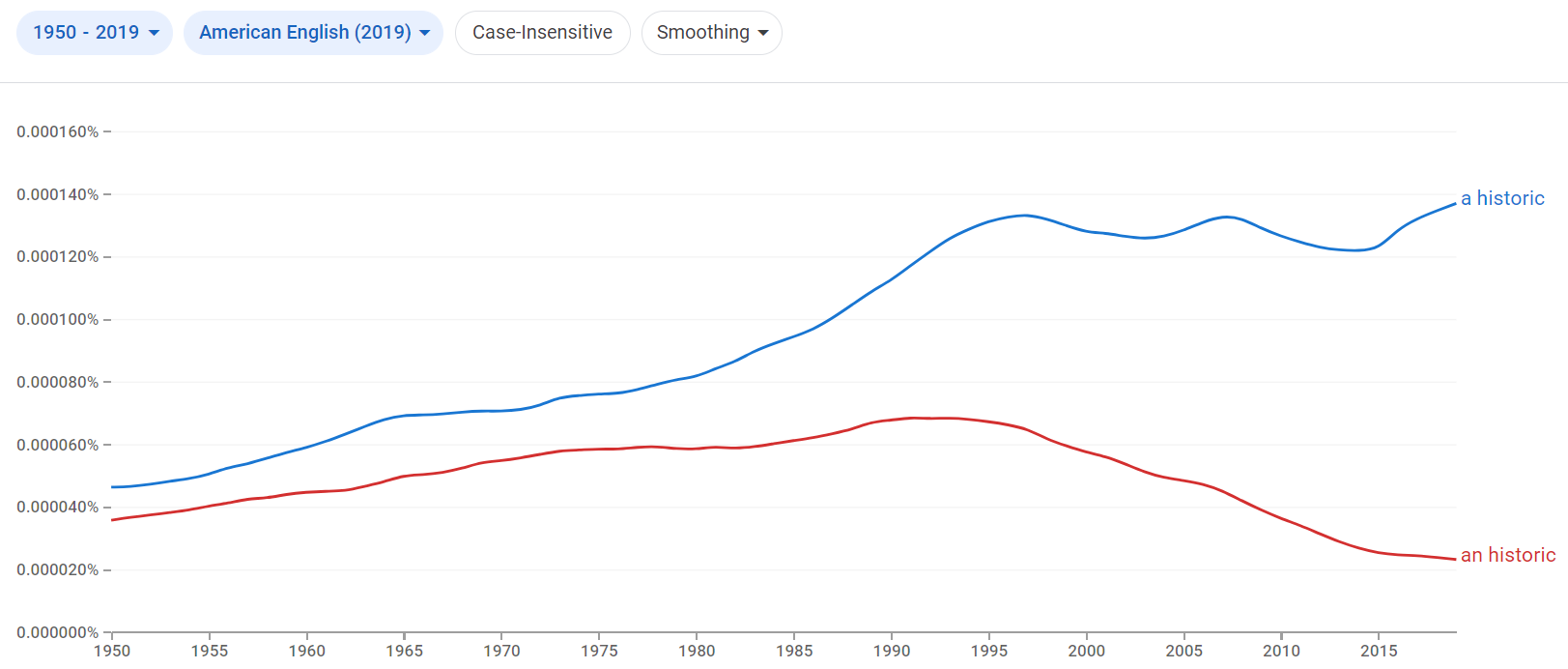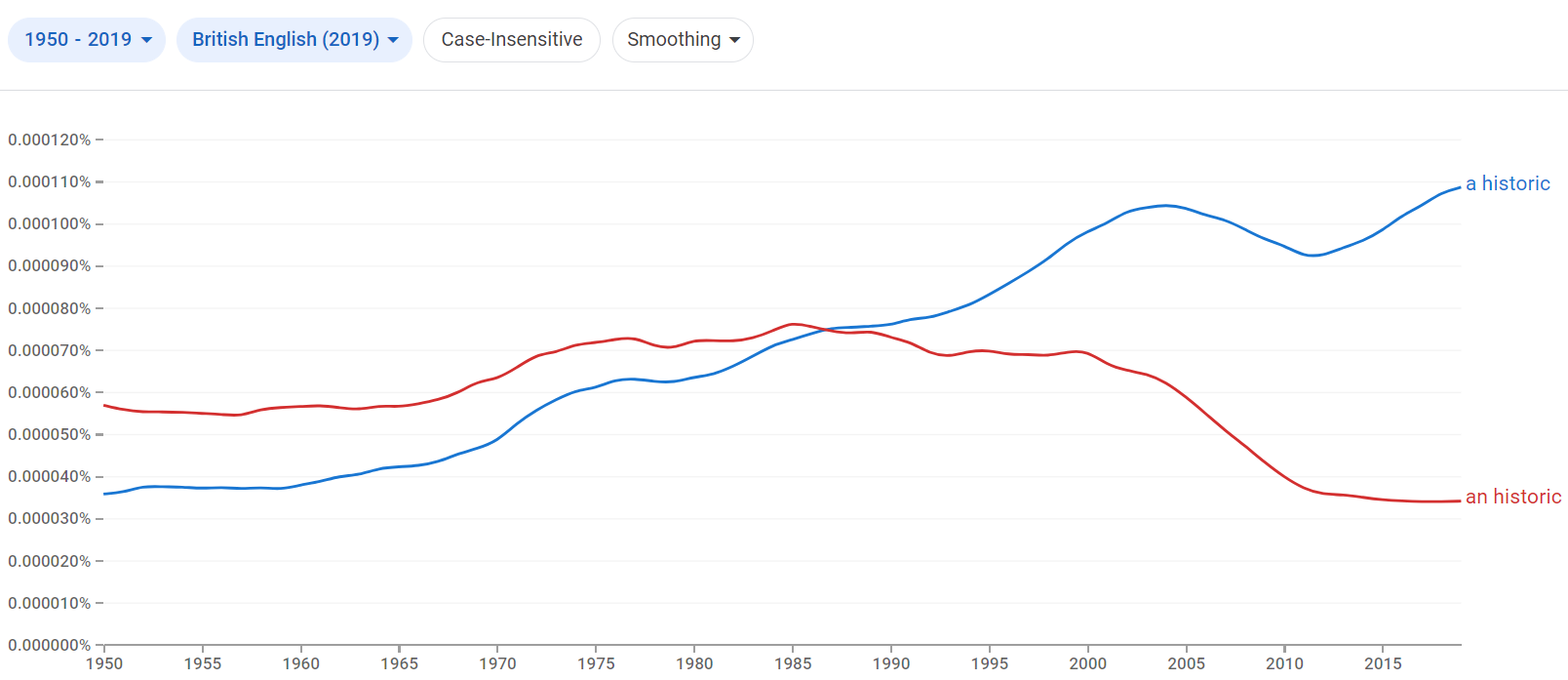Most American English speakers pronounce “historic” with an audible “h”, so they generally say and write “a historic”. Some British English speakers, by contrast, pronounce “historic” without the “h”.
Most American English speakers pronounce “historic” with an audible “h”, so they generally say and write “a historic”. Some British English speakers, by contrast, pronounce “historic” without the “h”, and therefore choose the indefinite article “an”.
It was indeed a/an historic event.
Remember, the rule for using a or an is based on pronunciation, not spelling, so choose the article that best suits your own pronunciation.
You can visit a/an historic war monument at the Military History Museum in Hanoi.
Be aware, however, that the sounded “h” with “historic” is far more common these days.
This is truly a historic day for our country.

Source: Google Books Ngram Viewer

Source: Google Books Ngram Viewer
Follow the same strategy with the word historical and historically.
We should take a historical approach to social policy.

